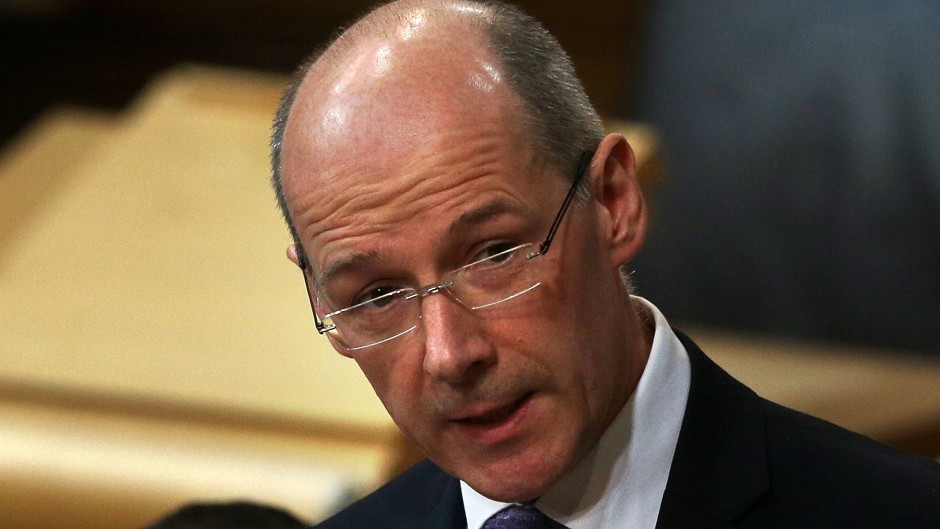Finance Secretary John Swinney has claimed his draft 2015-16 budget would meet people’s aspirations to live in a more prosperous and fairer Scotland.
He told MSPs yesterday that he had made decisions to enhance economic growth, tackle inequalities and protect and invest in public services.
But he cautioned that the £30billion spending plans were framed against a backdrop of Westminster budget cuts.
Mr Swinney said he planned to make full use of the government’s £304million capital borrowing powers.
He plans to spend £4.5billion on infrastructure, invest £330million on new and refurbished schools and £16.6million on youth employment schemes.
The government will invest more than £300million over two years in extending child care to 600 hours for youngsters aged three to four and vulnerable two-year olds and provide additional support for looked after children.
Mr Swinney also plans to spend £81million to mitigate against Wesminster’s welfare reform, including the so-called bedroom tax, and maintain the council tax freeze, free prescriptions, concessionary travel and free personal care.
He plans to invest more than £170million to help drive integration of adult health and social care, continue to support 1,000 additional police officers, protect council budgets and maintain a living wage for public sector workers.
Mr Swinney said: “This budget follows the most vibrant political campaign Scotland has ever experienced.
“No one could have missed the aspirations expressed with breathtaking clarity that the people of Scotland want to live in a more prosperous and a much fairer country than it is today.
“This budget is focused on meeting those ambitions, as far as we can within our current powers, by tackling inequality, investing in our economy and protecting and reforming our public services.”
Mr Swinney said the actions he has taken demonstrated the values and priorities of the Scottish Government.
“We drive forward investment in our economy, we protect our NHS, we invest in our young people and businesses and we protect the most vulnerable,” he added.
